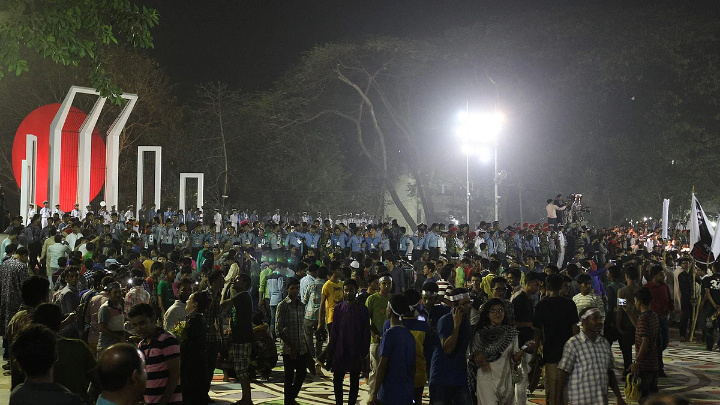Fundamentalism Through the Ages

Just as the Church exerted influence over European emperors, Islamic custodians in Bangladesh have attempted to influence governments through various means. Instead of fostering religious practices among the people, they often emphasize violent rhetoric, murder, wounds, and bloodshed, claiming these actions to be in accordance with true religion.
Between 300 and 1,000 years after the advent of Christianity, it became the predominant religion in Europe. The primary text of Christianity is the 'Bible New Testament', originally written in Hebrew and Latin. However, most Europeans did not understand these languages. Consequently, the interpretations provided by the Pope and clergy from the Church were accepted by the people as religious doctrine.
Priests often distorted the words of the Bible for their own benefit. They preached messages that increased their power and enriched themselves.
During this time, the Pope, clergy, and Church wielded significant power across Europe. Their influence grew to the extent that they could compel kings or emperors to act according to their will.
The Church could execute apostates or depose heads of state at their discretion. Moreover, they received various donations and funds from the populace in the name of religion. The clergy managed these funds, and people were fined for their sins, generating substantial income for the Church.
The clerical class engaged in power struggles among themselves over control of this wealth, even going so far as to label followers of rival churches as heretics.
In the 14th century, a man named John Wycliffe translated the Bible into English, making it accessible to the general public. People began reading the Bible to understand the human side of Jesus Christ, leading to stark differences between the actual Bible and centuries-old traditions of the Church.
John Wycliffe eloquently criticized the corruption within the Church and its abuse of religious authority. As a result, people started rejecting the Church's priesthood.
In a fit of rage, the Pope of Rome ordered Wycliffe's imprisonment. However, this order was ineffective due to the overwhelming support for Wycliffe among the people.
On December 31, 1384, Wycliffe passed away peacefully in an independent life. He was laid to rest in Lutterworth, England.
However, fundamentalism often manifests violently in all religions. Even in death, Wycliffe was not allowed to rest in peace. Just 31 years later, in 1415, Christian fundamentalists, acting under a decree from Pope Constance of Rome, exhumed Wycliffe's grave and burned his remains.
Similar practices are observed in Islam within present-day Bangladesh.
Many people in Bangladesh do not understand Arabic, the language of the Qur'an. Consequently, a group of scholars provide various interpretations of the Qur'an and Hadith (sayings of Prophet Muhammad).
On the contrary, those who oppose these scholars are also considered scholars and have knowledge of Arabic. However, due to differing interpretations, conflicts and opposition arise among them.
These so-called scholars condemn dissenters to hell while accepting donations from society's corrupt elements. Despite publicly denouncing greed, their accounts show transactions worth millions.
Just as the Church exerted influence over European emperors, Islamic custodians in Bangladesh have attempted to influence governments through various means. Instead of fostering religious practices among the people, they often emphasize violent rhetoric, murder, wounds, and bloodshed, claiming these actions to be in accordance with true religion.
Similar to the Church's treatment of Wycliffe, preservationists within Islam preach violence against dissenters across the country.
Fundamentalism essentially takes on similar forms across all religions. Due to our lack of knowledge, we often misinterpret these actions, believing them to be righteous.























